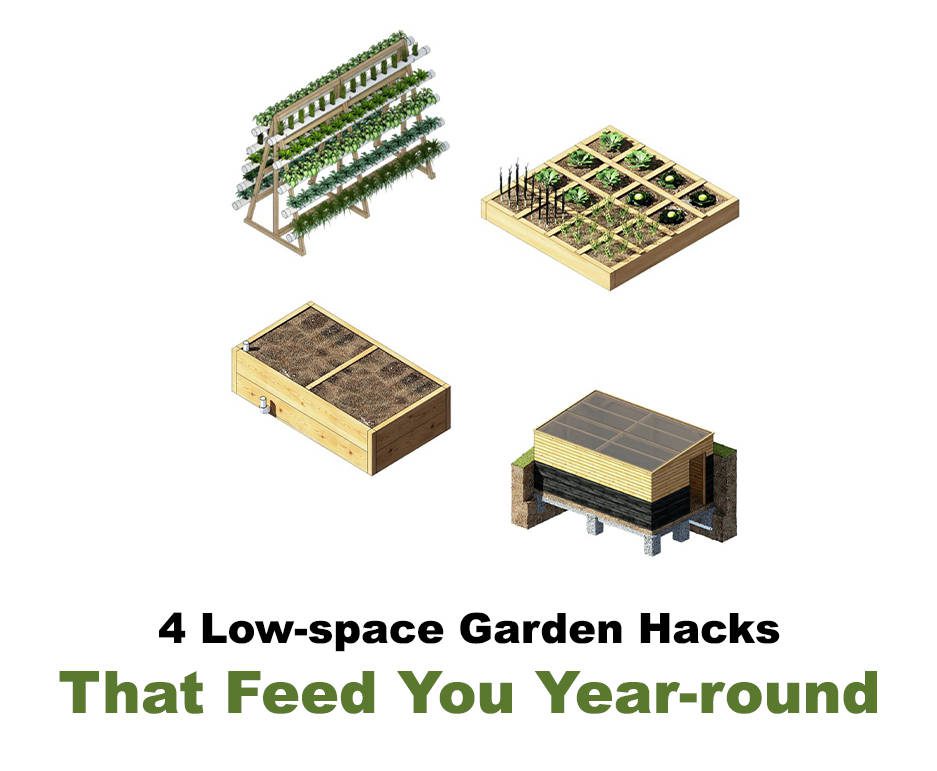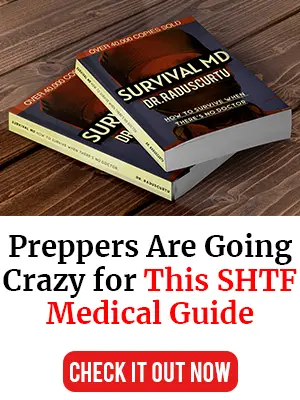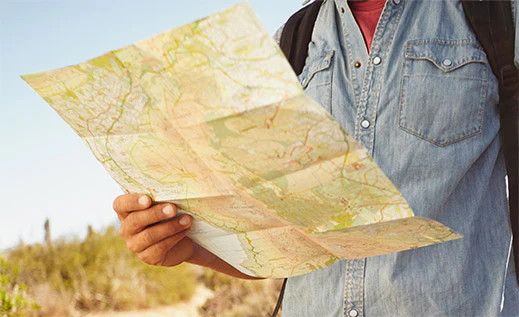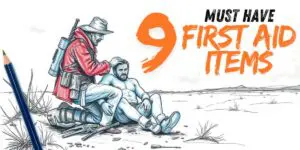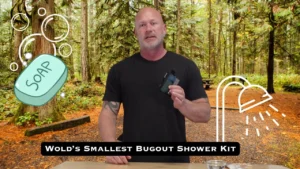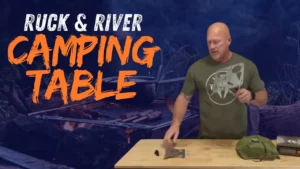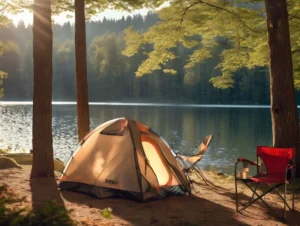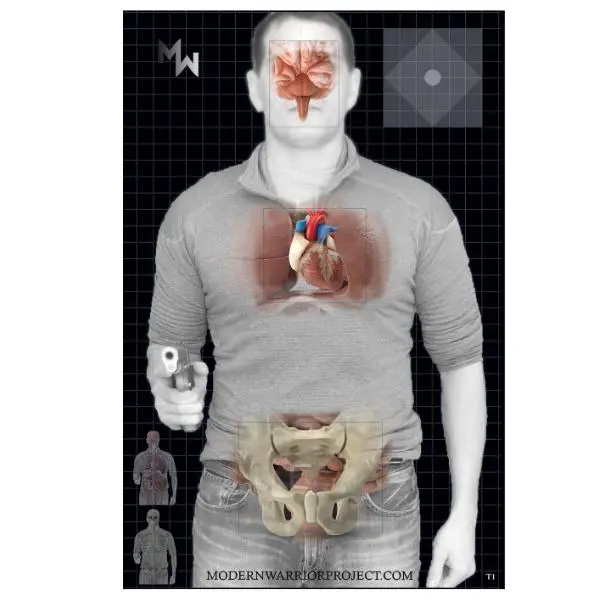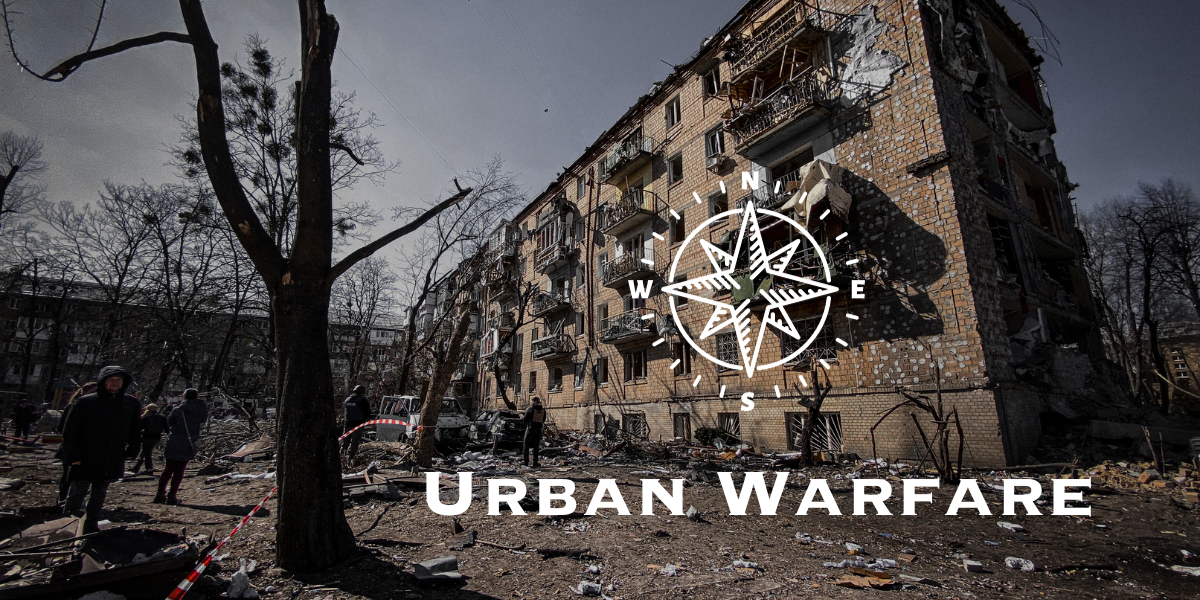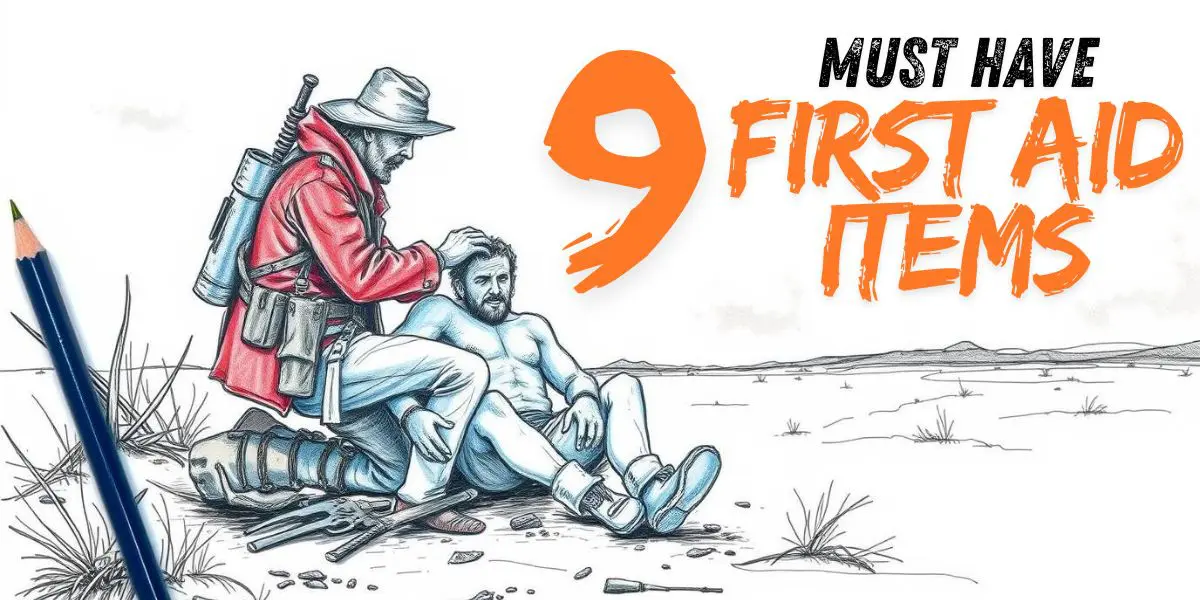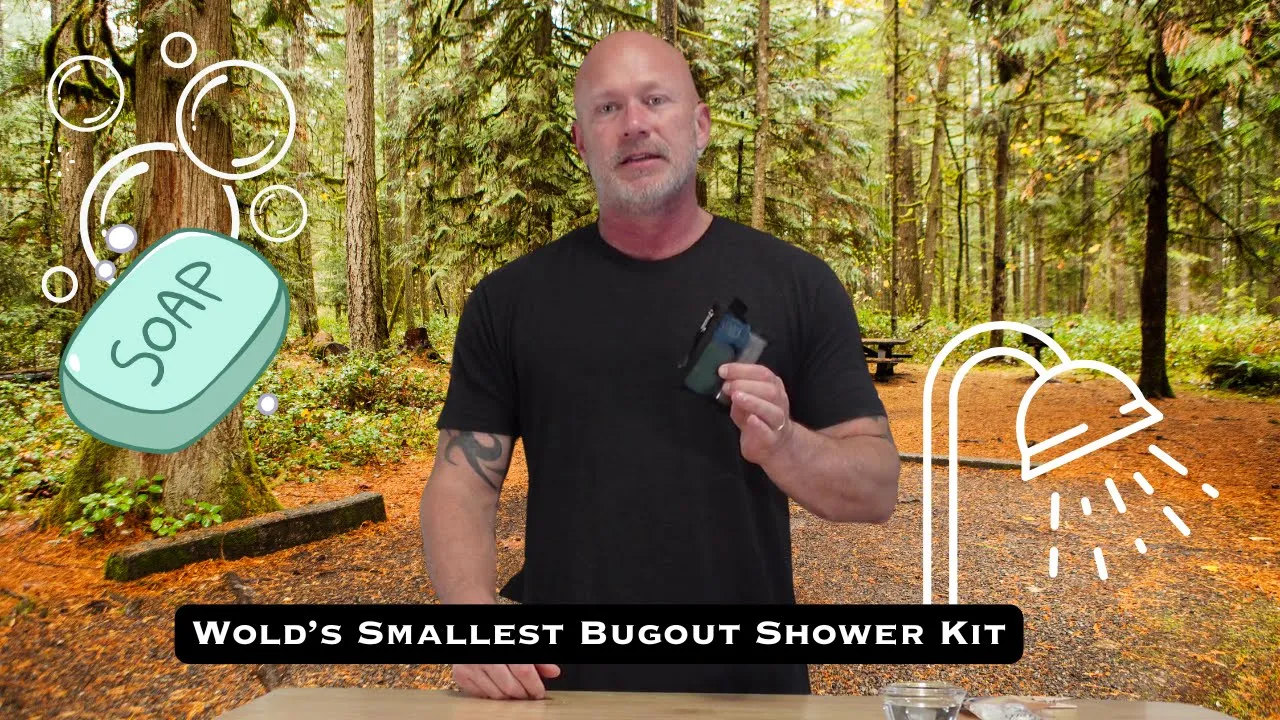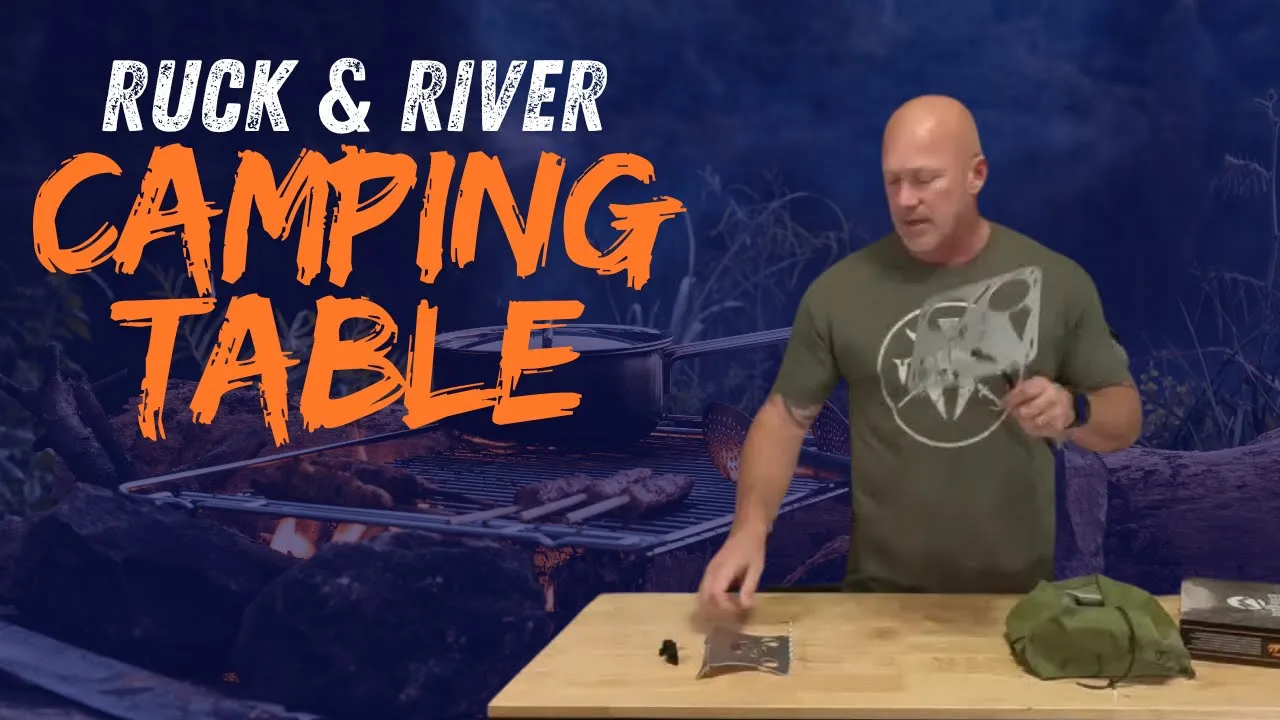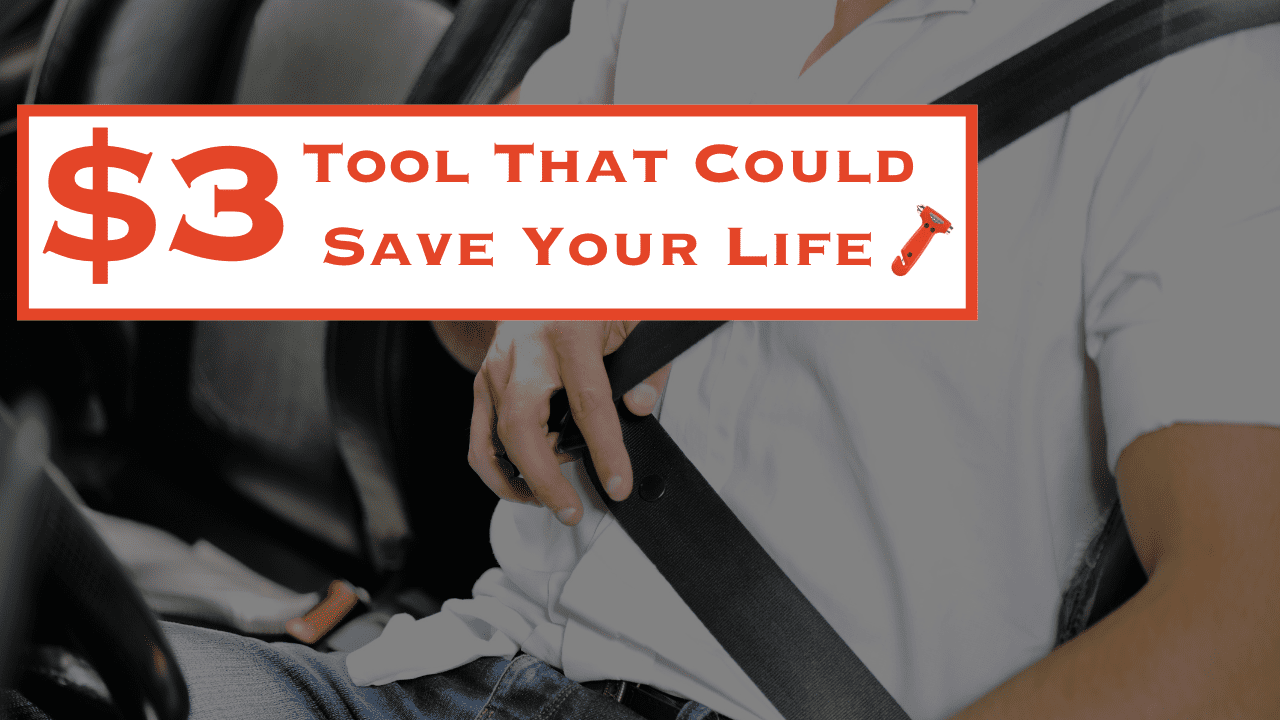Introduction
Scavenging is an essential skill for preppers, especially when disaster looms. The ability to find and repurpose resources can mean the difference between survival and despair. As society crumbles, the need for resourcefulness becomes paramount.
In this article, we will uncover surprising scavenging secrets every prepper should master, including:
- Understanding your terrain to identify potential supply caches.
- Building relationships within your community for mutual support.
- Staying physically fit to tackle scavenging challenges effectively.
One of the most valuable resources you can find in your environment are wild edibles. Knowing about 5 wild edibles in North America can significantly enhance your scavenging success. Prepare to dive deep into the art of turning trash into treasure and discover how to equip yourself with the skills necessary for survival in any scenario.
1. Understanding Your Terrain: The Key to Successful Scavenging
Knowing your surroundings is the first step in the scavenging game. Imagine navigating an urban landscape during a crisis. Familiarity with your environment can mean the difference between survival and despair. Consider these essentials:
1. Identify Potential Supply Caches
Grocery stores, pharmacies, and hardware stores should be at the top of your scouting list. These locations are treasure troves of food, medical supplies, and tools. Make mental notes of their layouts and stock; those memories will serve you well when chaos reigns.
Topo Maps are an important part of your prepping supplies. At My Topo Maps you can purchase topographical maps for any area you need. They even offer customized topo maps for those wanting to perfect their prepping plan.
2. Mapping Skills
Relying solely on GPS can lead to disaster during a grid failure. Embrace good old-fashioned mapping techniques. Learn how to read a map effectively, plot routes, and recognize landmarks that guide you through an unfamiliar area.
3. Navigation Techniques
Mastering navigation skills is paramount for effective scavenging. Practice using a compass and familiarize yourself with navigating by the sun or stars. These skills will empower you to traverse both familiar and uncharted territories without electronic reliance.
Knowledge of your terrain equips you to scavenge efficiently, turning potential obstacles into opportunities for resource gathering in desperate times.

2. Essential Resources Every Prepper Should Know How to Scavenge
When disaster strikes, a well-stocked inventory transforms into your survival Bible. Knowing what to look for can mean the difference between life and death. Here’s a starter list of essential resources every prepper should prioritize:
- Food: Non-perishable items like canned goods, dried fruits, and grains are essential. Look for unopened packages or cans in abandoned homes or grocery stores.
- Water: Always scout for clean water sources. Bottled water can often be found in supplies left behind. Remember: even a small stash can be life-saving.
- Medical Supplies: First aid kits, antiseptics, bandages, and over-the-counter medications are vital. Pharmacies may hold treasure troves of these items.
- Tools: Basic hand tools like hammers, screwdrivers, and multi-tools are invaluable. They help not only in repairs but also in creating makeshift solutions.
Understanding the value of these items is crucial during scavenging expeditions. A can of beans might seem trivial until it’s your only meal for days. Similarly, knowing how to use medical supplies can prevent minor injuries from becoming life-threatening.
In a scavenging scenario, prioritizing these resources ensures you’re equipped to handle various survival challenges effectively. For a more comprehensive approach to prepping, consider referring to Jeb’s Prepping Guide which outlines top essential items you need to prep now.
Additionally, understanding the environment is key when choosing your bugout location. Here are 7 essential factors for choosing the best bugout location that could significantly enhance your survival chances.
Lastly, having the right tools can make all the difference. For instance, a Clear Practice 7 Pin Dimple Lock with Cover could prove invaluable in securing your supplies or shelter during a crisis.
3. Safe and Effective Dumpster Diving Techniques for Preppers
Dumpster diving may not sound glamorous, but it can be a game-changer in desperate times. Understanding the practicality of this skill is crucial for preppers. The reality is that when supplies dwindle, what others discard could become your treasure.
Safe Techniques for Dumpster Diving
- Choose the Right Location:
Target grocery stores, bakeries, and restaurants. These places often throw away perfectly good food and materials. - Time Your Visits: Early morning or late at night are ideal. This reduces the chance of getting caught and gives you access to freshly discarded items.
- Dress Appropriately: Wear gloves and sturdy clothing. A face mask can also help avoid unpleasant odors.
Enhance Your Scavenging Success
- Bring Tools: A flashlight, reusable bags, and even a small cart can make transporting your finds easier.
- Be Mindful of Safety: Look out for sharp objects or hazardous waste. Avoid areas that seem unsafe or unsanitary.
Repurposing materials found during these excursions can provide solutions to various needs. Items such as furniture, tools, or even clothing can be salvaged and transformed into functional assets. Adopting a creative mindset ensures that nothing goes to waste.
Mastering these safe dumpster diving techniques equips every prepper with essential scavenging secrets. When you need resources most, knowing how to sift through society’s leftovers could prove invaluable.
4. Bartering Skills: Turning Scavenged Items into Valuable Resources
Bartering is an essential skill in survival situations. When traditional money loses its value, your ability to trade can mean the difference between life and death.
Understanding Value
Items have fluctuating worth based on scarcity and need. A can of beans may be precious when food is limited, while a lighter could become a sought-after commodity for starting fires.
Practicing Negotiation
Engage with local communities. Flea markets, swap meets, or even casual gatherings are excellent venues to hone your negotiation skills. The more comfortable you are with assessing item values, the better equipped you’ll be to maximize the benefits of your scavenged goods.
Building Community Support
Establishing relationships within your community creates a network that enhances your bartering power. Knowing who has what creates opportunities for mutually beneficial exchanges.
Embrace this skill; it transforms mere scavenged items into valuable resources in times of crisis.

5. Training Your Scavenging Instincts: Scavenger Hunts and Beyond
Scavenger hunts aren’t just for kids on birthdays; they can be a critical training tool for preppers. Here’s how to turn these playful activities into serious survival training:
1. Organize scavenger hunts with specific survival goals
Set challenges such as:
- Finding certain items within a time limit
- Navigating through challenging terrains
- Practicing basic first aid on the move
These activities sharpen instincts, improve reaction times, and foster quick thinking under pressure. The more you sweat in training, the less you bleed in battle.
2. Engage in DIY projects to build practical skills
Think of yourself as the MacGyver of your neighborhood. Ideas include:
- Constructing makeshift shelters from household materials
- Crafting tools out of scrap items
- Experimenting with ways to start fires without matches
Such creativity not only enhances improvisation skills but also prepares the mind to see beyond conventional uses for everyday objects. When traditional resources are unavailable, this mindset becomes invaluable.
3. Foster teamwork and camaraderie through training
Training is more than just physical activity; it’s about fostering teamwork and camaraderie among fellow preppers. Each scavenger hunt or DIY project can strengthen community bonds while honing essential skills necessary for survival situations.
6. Building Community Relationships: Strength in Numbers During Crises
Scavenging is not a solo sport. Establishing strong relationships within your community can be the difference between survival and despair when disaster strikes. Consider these strategies for building a reliable support system:
- Know Your Neighbors: Engage with those living around you. Simple conversations can reveal hidden skills or resources that could be invaluable during a crisis.
- Connect with Local Businesses: Forge ties with local shops and service providers. They may have access to supplies or information that can aid your scavenging efforts.
- Join Local Prepper Groups: Networking with like-minded individuals enhances your resource pool and knowledge base, creating a safety net when times get tough.
Community support transforms isolated survival into collective resilience. When the chips are down, having a reliable network means you won’t be alone in navigating the challenges ahead. It’s time to build those bridges before the floodwaters rise or the lights go out.
7. Physical Fitness: A Crucial Component of Scavenging Success
Physical fitness is not just a suggestion for preppers; it’s a must when dealing with the unpredictable challenges of scavenging. Imagine this: you’re moving through a city in ruins, carrying supplies, or climbing over obstacles. Without proper preparation, your chances of success go down significantly.
Here are the key aspects of physical fitness you need to focus on for scavenging:
- Functional fitness: This should be the main focus of your training. Do exercises that imitate real-life movements to improve your agility and strength. Squats, lunges, push-ups, and pull-ups are not just exercises you do at the gym; they get your body ready for the actual demands of scavenging.
- Cardio training: Include activities like running, biking, or swimming in your routine. Being good at cardio helps you have more stamina, so you can walk longer distances without getting tired.
- Strength training: Build muscle strength to carry heavy loads of salvaged supplies. Weightlifting or resistance training can develop the power you need to lift and move things efficiently.
If you ignore physical preparation in your plans, you might struggle to catch your breath while others thrive during a crisis. Embrace the hard work now; it will pay off when survival is at stake. A fit body is your best tool for survival, one that can adjust to any scavenging situation you may encounter.
8. Continuous Learning: Acquiring Survival Knowledge Beyond Scavenging Skills
Basic first aid knowledge is essential for preppers. Injuries can happen during scavenging trips, and knowing how to treat wounds can be a matter of life or death. Here are some important things to consider:
1. First Aid Training
Sign up for a first aid course that teaches you how to handle everything from minor cuts to serious emergencies. It’s crucial to be familiar with first aid kits and what they contain.
2. Survival Workshops
Look for workshops and courses that focus on survival skills. These may cover topics like finding food in the wild, starting fires without matches, or building shelters. Such experiences not only improve your practical abilities but also boost your confidence in stressful situations.
The more knowledge you gain, the better equipped you are to face unexpected challenges. Always stay open-minded, flexible, and willing to grow as a prepper.
9. Regular Drills and Performance Reviews: Fine-Tuning Your Scavenging Abilities
Scavenging isn’t just a spontaneous act of rummaging through debris; it’s a skill that requires practice. Conducting regular scavenging drills can simulate real-life scenarios, honing your instincts and efficiency when it truly counts. Think of these drills as your personal training camp for the apocalypse.
Why Drills Matter
- Realistic Scenarios: Set up situations where you must find essential resources within a time limit. This could be navigating through familiar neighborhoods or urban landscapes.
- Different Challenges: Embrace various scenarios. Perhaps one drill focuses on scavenging food while another hones in on finding medical supplies or tools.
Performance Analysis
Post-drill reviews are critical to growth as a prepper. After each practice session, take the time to analyze your performance:
- Identify Strengths: What did you excel at? Recognizing your strong points boosts confidence.
- Spot Weaknesses: Did you struggle with navigation? Were you inefficient in assessing item value? Acknowledging areas for improvement is vital.
Utilize this feedback loop to continuously enhance your skills as a prepper. The more you integrate drills into your routine, the more instinctive your scavenging actions will become when the stakes are high.
Training for survival means expecting the unexpected. Stay sharp, adapt, and remember—what doesn’t kill you might just make you better prepared for the next scavenging adventure.
Conclusion
Mastering Scavenging Secrets for Preppers transforms survival from mere luck into strategic planning. By honing your skills in:
- Understanding your terrain
- Identifying essential resources
- Practicing safe scavenging techniques
- Building community connections
You prepare not only for finding supplies but also for thriving amidst chaos. Each step taken toward proficiency enhances your confidence and adaptability. Embrace the challenges, learn continuously, and remember—survival is a mindset as much as it is a skill set. Stay prepared, stay resourceful, and when the time comes, let your scavenging instincts shine.






